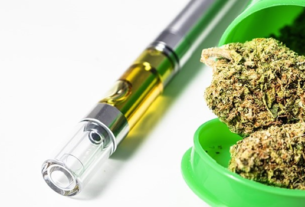Dry skin is a very common problem that can be caused by a variety of factors, such as environmental conditions, lifestyle habits, and medical conditions. Without proper care, it can lead to uncomfortable itching and flaking, as well as an increased risk for infection. Fortunately, there are many ways to treat and prevent dry skin through dietary changes, topical treatments, and lifestyle modifications.
In this article, we will discuss the causes of dry skin in detail and provide tips on how you can help keep your skin healthy and hydrated. We will also provide information on when to seek medical help for dry skin.
Environmental Factors That Cause Dry Skin
Environmental conditions like cold temperatures, low humidity levels, and excessive washing can lead to dry skin. In cold temperatures, the air tends to be drier and may draw moisture away from the skin leading to a decrease in its hydration levels. Similarly, low atmospheric humidity levels mean that there is not enough water vapor in the air for your body to absorb and stay hydrated. Lastly, too much washing or using overly hot water can strip away the skin’s protective barrier and leave it feeling dry and tight.
Lifestyle Habits That Contribute to Dry Skin
Certain lifestyle habits may also contribute to dry skin. For example, drinking alcohol and smoking cigarettes can reduce the body’s ability to produce natural oils which are important for maintaining the skin’s moisture levels.
Additionally, using harsh chemicals or detergents on the skin (such as ones often found in acne treatments) may cause a reaction that leads to dryness. Similarly, using a water softener from Salt Lake City can reduce the amount of minerals in your water which may also be drying out your skin.
Another potential cause of dry skin is bathing too frequently or for extended periods of time. This can strip away the skin’s natural oils, leaving it feeling dry and tight.
Medical Conditions That Lead to Dry Skin
In some cases, dry skin may be caused by a medical condition such as eczema or psoriasis. These conditions are characterized by red, itchy patches of skin that may become scaly or cracked. They can be caused by a variety of factors including allergies and genetics.
Tips for Treating and Preventing Dry Skin
To treat dry skin, the following tips may help:
- Avoid overly hot water when bathing or showering and limit your time in the water.
- Use mild, fragrance-free soaps or cleansers that won’t strip away natural oils.
- Moisturize daily with a hypoallergenic cream or lotion that is free of fragrances and dyes.
- Eat foods like avocados, salmon, and sweet potatoes that are rich in healthy fatty acids.
- Wear loose-fitting clothing made from natural materials.
- Drink plenty of fluids to stay hydrated.
- Use a humidifier if the air is too dry.
- Take shorter showers and use warm water instead of hot water.
- Avoid rubbing or scrubbing the skin too harshly and use lukewarm water instead of hot water when washing your face.
When to Seek Medical Help for Dry Skin
If these measures don’t help relieve your dry skin, then it may be time to see a doctor. Your doctor can evaluate your condition and help to determine whether it is caused by a medical condition or something else. They may also be able to recommend treatments such as topical creams or oral medications that can help relieve your dry skin.
Conclusion
Dry skin is a common problem that can be caused by a variety of factors, including environmental conditions, lifestyle habits, and medical conditions. Fortunately, there are many steps you can take to treat and prevent dry skin such as using mild cleansers, eating foods rich in fatty acids, drinking plenty of fluids, and wearing loose-fitting clothing. If these measures don’t help relieve your dry skin, then it may be time to see a doctor. With the right treatment plan, you can keep your skin hydrated and healthy.




